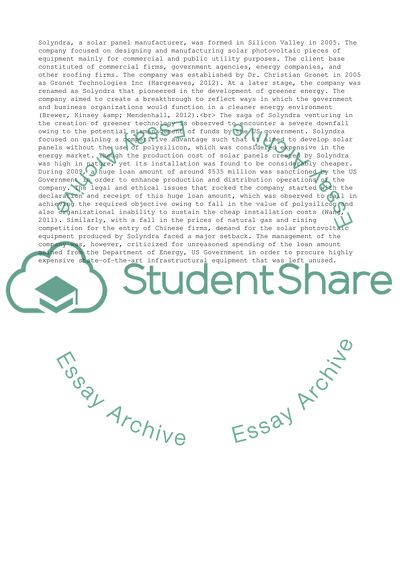Cite this document
(“Discuss the legal and ethical issues surrounding Solyndra, the Essay”, n.d.)
Retrieved from https://studentshare.org/business/1654372-discuss-the-legal-and-ethical-issues-surrounding-solyndra-the-california-based-solar-panel-manufacturer
Retrieved from https://studentshare.org/business/1654372-discuss-the-legal-and-ethical-issues-surrounding-solyndra-the-california-based-solar-panel-manufacturer
(Discuss the Legal and Ethical Issues Surrounding Solyndra, the Essay)
https://studentshare.org/business/1654372-discuss-the-legal-and-ethical-issues-surrounding-solyndra-the-california-based-solar-panel-manufacturer.
https://studentshare.org/business/1654372-discuss-the-legal-and-ethical-issues-surrounding-solyndra-the-california-based-solar-panel-manufacturer.
“Discuss the Legal and Ethical Issues Surrounding Solyndra, the Essay”, n.d. https://studentshare.org/business/1654372-discuss-the-legal-and-ethical-issues-surrounding-solyndra-the-california-based-solar-panel-manufacturer.


